Negative Scenario I
Ivan ZuenkoThe strategic partnership of Russia and China (as people like to call this relationship, eschewing the word “alliance”) is one of the key factors shaping all of world politics. However, this partnership is still quite fleeting and weakly grounded, inasmuch as it is based on the personal relationship of the two countries’ leaders and their similar views on US global hegemony, but not undergirded with a serious economic foundation. Potentially, three problems could undermine the friendship of the dragon and the bear.
The first (and the hardest to pin down because it is at odds with the official discourse) is the problem of the so-called “lost Chinese territory” in the Far East. To be sure, all territorial disputes have been resolved on paper, and official representatives of the two countries and specialists who concern themselves with this bilateral relationship repeatedly remind people of this. Indeed, the Far Eastern region of Russia was never settled by Chinese themselves, and the pretensions first articulated by Mao Zedong are based only on the fact that from the 17th to the end of the 19th centuries, these lands formally (without any kind of economic development) became part of the Manchurian Qing empire. Even so, Chinese public opinion is more radically configured. And no matter how much experts insist “history is history and now the Far East is Russian,” Chinese tourists coming to Vladivostok are confident that this former Chinese city will need to be returned someday. Most of all, this is not a unique instance, but a really widespread sentiment in society. Alas, in the case of a change of the authority in China and a reawakening of nationalist rhetoric, the “great friendship” with the northern neighbor—as happened 50 years ago at the time of Mao and Khrushchev—will be replaced by calls for the return of “lost territories” and military confrontations.
The second problem (and potentially the most serious one) is the fundamentally different approaches to the development of the Arctic. In Russia’s opinion, the right to develop what Russians call the Zapoliar’ia, including the northern sea route and the rich natural resources of the shelf of the Arctic Ocean, is held only by the club of Arctic powers, including Russia, the United States, Canada, and five Scandinavian states. In the opinion of the Chinese, the Arctic is the heritage of the entire world, and any state that can do so should be allowed to develop it. Considering how seriously Russia takes its northern treasure, it is hard to imagine that it would reconsider its principles and make an exception for its key ally. It is even more difficult to expect this of China, which, as its economic power grows, is ever less inclined to compromise.
Finally, the third problem is relations between Russia and China in post-Soviet Central Asia. Both countries consider this region their sphere of influence, although officially striving to avoid competition. One often has occasion to hear about the complementary interests of Russia and China at varied presentations
by experts, as if China can offer to Kazakhstan, Uzbekistan, Tajikistan, Kyrgyzstan, and Turkmenistan investments and easy credit, while Russia, in its turn, can (and should) provide for regional security. This is a pretty scheme, but, to me, it seems far from reality. In fact, China nowhere and never declared that it does not have military-strategic interests. Moreover, China may need military-strategic control precisely over this region in order to resolve two key problems: 1) to provide security for trans-continental, overland logistics, which carry to China from the Middle East energy resources and from China to Europe industrial goods; 2) to secure its western regions from the influence of what Chinese call the “three evils” (extremism, separatism, and terrorism), which are closely linked to Islamic fundamentalism.
On top of this, China has much greater ambitions to spread its cultural values than it might appear from the point of view of Eurocentrism. The Belt and Road Initiative (BRI), appears to me to be aimed at the creation in areas surrounding China an entire string of satellite-states, which depend on China, not only financially but also politically and, not unimportantly, culturally. As for Russia, which as before regards Central Asia as its former colony, it could hardly allow anyone (even if it were not the United States, but China) to spread into this region its economic and cultural influence at the same time that Russia was expected to be satisfied with only some military bases there. Russia is a great power. In its imperial dreams, on which, to a great extent, the ideology of the Putin epoch is built, Russia is not only a regional leader, it is the great Eurasian civilization bringing enlightenment to the East and conservative wisdom to the West. Ideology demands confirmation of this, and for Russia Central Asia is especially important since precisely here Russia’s imperial ambitions are most clearly visible. After the point when Moscow’s positions in Eastern Europe and the South Caucasus were practically lost, it was precisely Central Asia that was viewed as the last outpost of geopolitical greatness, the loss of which in no circumstance should be permitted.
A large part of Central Asia, as before, speaks Russian. In all countries of the region, in power are politicians who were educated and began their careers in the Soviet Union. The economies of Tajikistan, Kyrgyzstan, and, in part, Uzbekistan depend on the monetary remittances of migrant laborers working in Russia. Most countries in the region with the exception of Turkmenistan, which strives for isolation, participate in various integrative formations, in which the leader or active participant is Russia. In general. Russia, not without reason, considers Central Asia its sphere of influence, and if it tolerates China there, then this is only because of hope for China’s support in Russia’s relations with the West and the limitations of its own financial resources, as well as the active positions of the “Stans” themselves, able to keep balancing between the great powers around them.
The status quo accommodates everybody, but the force of China in the region unavoidably arouses a painful reaction in Moscow. And if China really values its relations with Russia, it should consider this. We can distinguish two groups of interests over which the “strategic partners” could collide: humanitarian and economic.
It is possible that some may find it strange, but for Russia the question of preserving the sphere of its language and cultural influence is a matter of principle. The status of the Russian language (and even of Cyrillic letters) sometimes can be even more important than concrete economic interests. One should not forget that the escalation of events in Eastern Ukraine began with what was occurring in Kiev when the authorities put in doubt the status of Russian as a national language. I remember too that the decision of Nursultan Nazarbaev to convert the Kazakh language to Latin letters aroused turmoil in Russia (although it should have appeared to be a deeply personal matter of a sovereign state). Obviously, observing decency on the part of Russian politicians on this question for the sake of sustaining allied relations with Astana demanded quite an effort by Moscow.
Against this background, China’s actions, actively using its “soft power” in Central Asia and having available for that incomparably greater resources, is viewed in Russia as a clear threat to its own cultural positions in the “Stans,” which react anxiously to any reminder about their past colonial status within the Russian empire/Soviet Union, willingly availing themselves of every possibility to differentiate their humanitarian ties and to break free from the embrace of their “older brother.” The more successful China will be in advancing its own language, education, and pop-culture, raising Chinese-speaking politicians from the ranks of local elites, the more complicated it will be for Moscow to convince itself that China is, all the same, an ally and not an adversary.
From the point of view of economics, this has already been apparent. Both Russian and Chinese companies view Central Asia in the same way: as metropols seeking cheap natural resources and markets for their goods. These companies are fighting for the very same tenders and projects. And in this struggle, Russia only has two advantages over China: still possessing cultural/political ties to local elites, and the natural xenophobia of populations of Central Asia toward the Chinese. Without these two factors China is “destined” for expansion and to render Russian businesses irrelevant. Many in Russia recognize this threat clearly, including those around President Putin who are connected to Russian big business. It is not accidental that the first inklings of the Chinese BRI aroused a negative reaction within Russian intellectual circles. Only after the Kremlin declared its official position—the course of “drawing together” the Silk Road Economic Belt and the European Economic Union (which was done at the height of opposition to the West)—the discourse in regard to BRI shifted. But under what conditions does Russia view this cooperation?
In order to understand, one must consider the writings of the “Valdai political scientists”—the likes of Karaganov and Bordachev—who brag about whatever the Kremlin determines to be its foreign policy agenda. In such texts, Russia, as before, is characterized as the leader of integration. In contrast, China—as moneybags—is portrayed as in need of the experience and diplomatic middleman role of Moscow; Central American partners are seen as silent bystanders, whose opinions are generally of little interest to anybody. In accord with their conclusions, Russia should lead and direct the integration process across the Eurasian expanse, which is forging a new multi-polar world order. Unfortunately, the opinion of colleagues from the “Valdai club” is scarcely considered in the positions of potential partners. First, China has long stopped being a “little brother” in its relations with Russia, very much to the contrary. Second, it is very complicated to expect a united position in relations with China from the countries of post-Soviet Central Asia, which are exploding with contradictions, and, moreover, expect Moscow to listen to them. Much more realistic is a situation in which Russia, equal to the “Stans,” should become one of a group in a great geopolitical game, conceived by BRI, which in spite of all the assurances of Chinese ideologues, still looks like a neo-colonial strategy and the construction of a “sinocentric world” at the center of Europe.
In the event that it becomes impossible for Russia not to become aware of these plans, it will be sufficiently strong in order not to fall into a long-term pit, and sufficiently strong to insist on its own interests in investment negotiations with China. Russia will never become a satellite of China, and will not give up its influence in Central Asia. The more China becomes aware of Russia’s unwillingness to change its relation to Central Asia, the more difficult it will be for Beijing to support the foreign policy initiatives of Moscow. Disappointment with Moscow as a partner in Central Asian policy can already be noticed, e.g. in the actions of China in the SCO. Now that China has balanced the entry of India with the admission of Pakistan, the SCO has become practically unworkable. The key integrating structure, in which Russia and China were equal partners, unfortunately, has lost its significance. Under these circumstances, China puts its trust on the future institutionalization of BRI, affirmation of which occurred most recently in the May forum in Beijing. Moreover, military cooperation of China with Pakistan, Afghanistan, and Tajikistan (without Russia’s participation) is being institutionalized around an organization that could be called the “Trans-pamir alliance,” the formation of which was initiated in 2016. Obviously, in the future, there will also be other examples.
In summary, Russia and China are beginning to recognize, with increasing frequency, that their own interests do not always intersect with those of their “strategic partner.” Both great powers are not ready to abandon their own interests, above all, in Central Asia, the struggle over which makes them more “natural adversaries” than “natural allies.” Partnership relations of the two countries are quite fragile, dependent on the personal relations of the leaders and ideological predispositions. The level of cooperation that now exists is a result of the long-standing toil of politicians, diplomats, and experts. This is the path of compromises and concessions, which our countries must sustain.

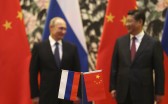
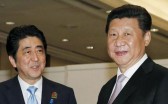

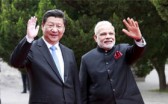

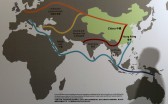


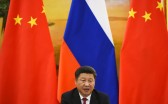
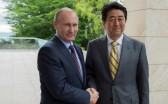

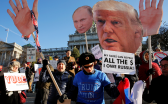
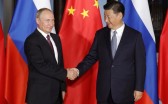
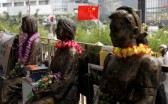
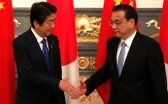
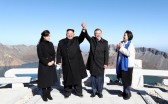
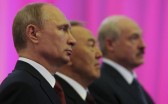
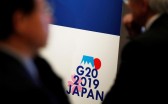


 Print
Print Email
Email Share
Share Facebook
Facebook Twitter
Twitter LinkedIn
LinkedIn